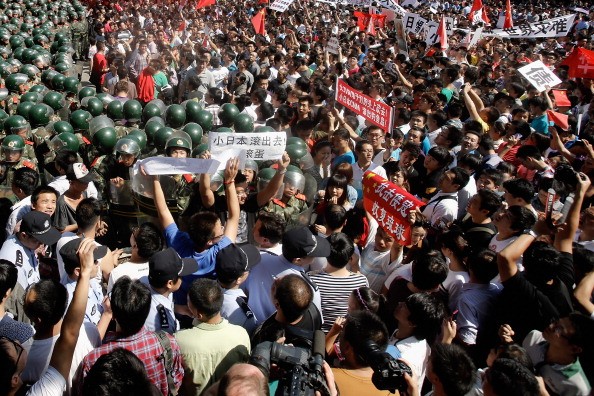With the upcoming Trump presidency and the issues hounding the Xi government, the reaction of Chinese nationalists and the ability of the Chinese government to keep them on Xi's side is one of the many uncertainties that faces Asia.
Last year, thousands of Chinese netizens attacked Taiwanese websites in a coordinated action after the election of Tsai Ing-wen. The Taiwanese President wanted to reduce the island's reliance on the mainland.
"There are lots of historic questions still unresolved but we can't just look at Japan. We need to change U.S.-China relations. The real problem is the U.S.," said Sima Pingbang, a popular nationalist blogger. Unlike their older counterparts who focused only on Japan, this new generation of Chinese nationalists are now tackling issues that involve Taiwan, the U.S. and the Muslim world.
Xi appeased the nationalist movement through his rhetoric about "national rejuvenation" last year during the 80th anniversary of the end of the Long March. He called for a strong China in the international stage and a strong Communist Party at home.
Anti-Beijing Sentiment Growing Offline
But it looks like Xi also has to address the growing anti-Beijing sentiment offline.
Citizens have become cynical with Beijing's economy-first policies, giving rise to a new political movement known as the New Left or new-Maoism. The start of the movement dates back to the early 2000s when intellectuals became concerned about the polarization in Chinese society because of the government's market-orient reform.
"Chairman Mao was a truly great man but this is not the country he dreamt of, this is not real communism. The economy today is dominated by monopoly industries controlled by the children of senior officials. The current government, led by Xi Jinping is very bad," said an unnamed university professor who identifies with the neo-Maoist movement.
It seems that more and more Chinese people are making their voices heard, both online and offline. Despite the moves to detract and appease these sentiments, it seems that the growing nationalist movement at home will become a potent force in driving China's politics both locally and internationally.



























